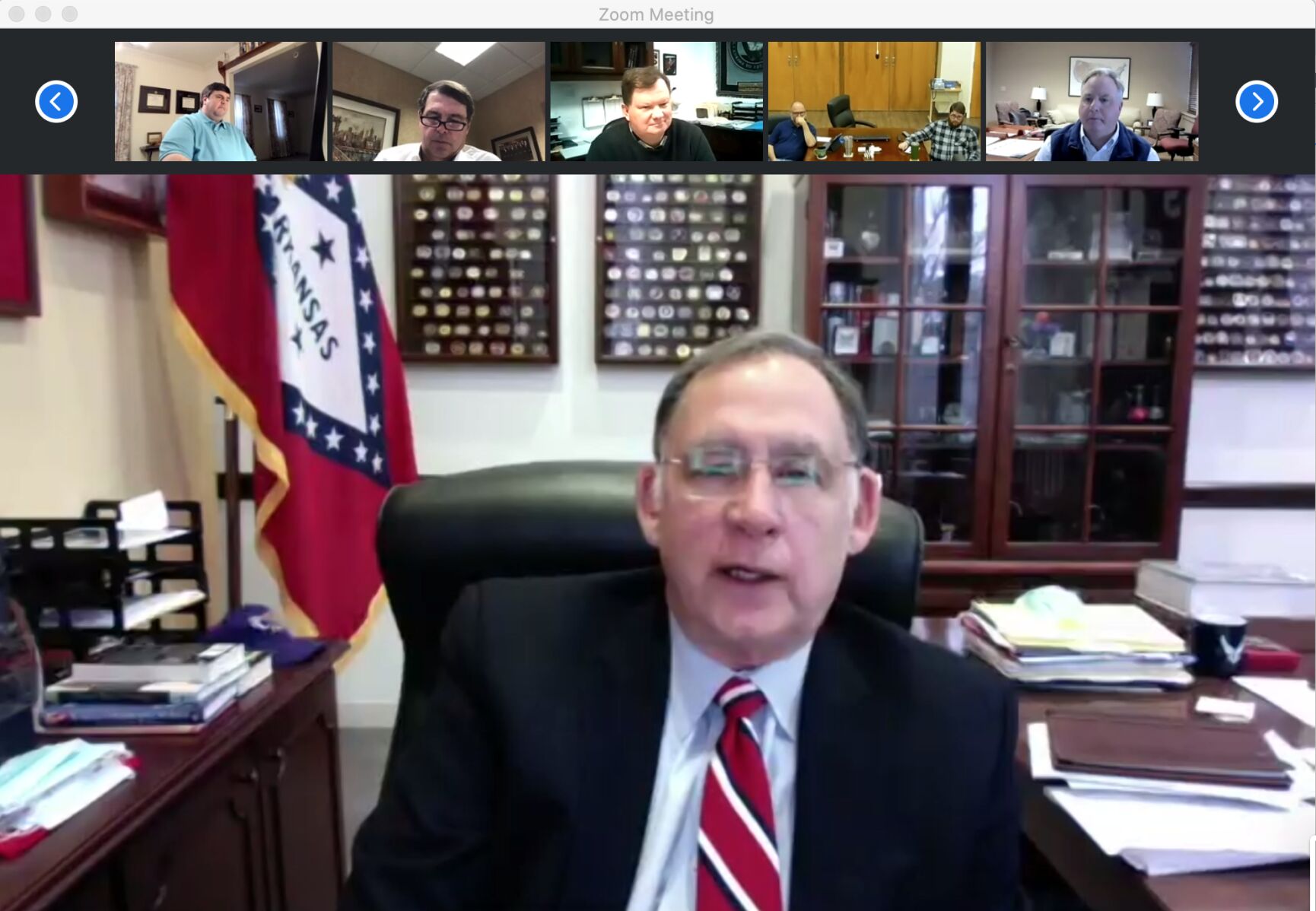Senator gives cotton growers the rundown on stimulus bill, carbon sequestration

The National Cotton Council of American recently held a virtual National Cotton Council Convention where Sen. John Boozman, R-AR, spoke at a general session about what agriculture—specifically cotton growers—should expect from Washington in the coming months. Boozman will serve as the ranking member of the Agriculture, Nutrition and Forestry Committee in the 117th Congress.
He started off by recognizing former Sen. Pat Roberts, R-KS, and his efforts as chairman of the Senate Agriculture, Nutrition and Forestry Committee and how much his presence will be missed in Congress.
“He did a tremendous job of holding everything together and we are going to be following in his footsteps,” Boozman added.
Boozman said one of the main issues Congress will be working toward going forward is trade.
“In Arkansas, 25% of the economy comes down to trade and if you get into the rural areas of Arkansas, it’s probably more like 85 or 90%, so trade is very important,” he explained. “Of that production, 40% is exported. We want to protect the markets that we’ve got. China is starting to pick up. President Trump held their feet to the fire and as a result, he got their attention because he wrecked their economy.”
Boozman is hopeful that China will live up to the agreements they made and improvements can be made to trade markets. He said other markets are also being vetted, like Cuba and the United Kingdom, so trade relationships can be more diverse.
“There are lots of opportunities out there and we’ll be working with the administration very closely to see if we can help secure those, making sure that commodities like cotton are well represented,” he added.
The COVID-19 pandemic has naturally been on the mind of lawmakers for more than a year now, but Boozman said the significant problems with the supply chains were spotlighted last year and need solutions.
“It didn’t break, but it certainly buckled. We have seen what happens when you totally shut down an economy and what happens to agriculture. We went from an economy that was in a 50-year high and within a month to a 75-year low as the economy shut down worldwide.”
In the last year, Congress authorized $4 trillion for COVID-19 relief and another $660 billion was issued through executive orders by President Donald Trump and now President Joe Biden. Boozman said Republicans and Democrats came together and had almost unanimous votes in the House and Senate on previous relief bills, but Republicans are now concerned that the Democrats have proposed a $1.9 trillion stimulus bill that throws up some red flags. He said $16.1 billion of the relief bill goes to agriculture, but the package was designed without any input from Republicans, and some issues like rural broadband were not addressed.
“I didn’t even know what was in it until they had the markup,” Boozman said. “We’re also in a situation that’s unprecedented because the Senate agriculture committee will have no input. Essentially what is going to happen is it is going to come over from the House and then all of the committees in the Senate will be bypassed and it will be voted on that way. We talk a lot about being bipartisan, but there is no bipartisan in this at all.”
Aside from the stimulus controversy, Boozman believes there is an opportunity to have a good year and find some common ground. One area he hopes to find a bipartisan solution is with the Carbon Capture bill.
“I’m very much in favor of the agricultural community participating in carbon sequestering and they do a tremendous job year end and year out and are one of the leading industries that have reduced their carbon footprint through the years,” Boozman explained. “If you’re going to do those practices, why not be reimbursed for it and develop a market for the great work the agriculture industry does.”
However, Boozman is concerned because the Carbon Capture bill opens the farm bill.
“I’m very much opposed to opening the farm bill because I think this is a contract with you all,” he said. “You need to have the ability to plan and I think it would make a very slippery slope going forward.”
Secondly, Boozman said some are painting the bill like it is paid for and will not cost anything, but in reality the money needed to fund it will come out of the Farm Bill, so something else will be displaced in order to pay for the carbon bill.
“I’d like to see this sent through the annual appropriations process like everything else is and let the appropriators take a look at it,” he said.
Finally, Boozman said a 25-member committee will be appointed and have a significant amount of power and input with this bill, however there are not many members that have agriculture backgrounds.
Sign up for HPJ Insights
Our weekly newsletter delivers the latest news straight to your inbox including breaking news, our exclusive columns and much more.
“If we are going to set it up in that way, the majority of the people on that committee should be from the farming community. The other thing that is so important as we go forward is I want to make sure it’s voluntary and people aren’t going to be forced into practices they don’t want to do. There are a few problems, but we are trying to clean things up so it can get to the point where we can support it. Right now we support the concept, but we’re a little bit leery of the actual construction of the package.”
Lacey Newlin can be reached 620-22-1871 or [email protected].


